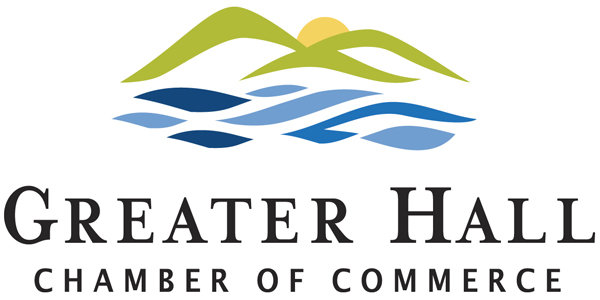For several years, I have had the opportunity to travel throughout Georgia, speaking to local government officials, chambers of commerce, leadership organizations, school groups, and the like, about water resource management. During these travels, I’ve observed that the overall public perception is that water is a low-cost, unlimited natural resource. To me, this is shocking, because we are confronted daily with clear signals that our usage and stewardship of water resources is lacking. We must change our approach to water management – dramatically. Please review these “signals” with me and then ask yourself, “Am I paying the necessary level of attention to this topic?”
One of the speeches I have used is entitled “The Imperfect Storm.” This spin title, derived from a famous modern-day movie, was chosen because it covers a catastrophic water/weather event. The Perfect Storm happened due to very unique circumstances. In Georgia today, we are confronted with a unique situation also, and there are three key “signals.”
First, we are confronted with a serious drought that moved into its fifth year at the end of April. Drought is identified by the three primary factors of soil moisture, rainfall deficit and future weather forecasts. All three factors remain critical now in Georgia, notwithstanding recent rainfall. Periodic and minimal rainfall will not move us out of this drought condition. Drought is Signal Number One.
Next, the Alabama/Coosa/ Tallapoosa (ACT) and Apalachicola/Chattahoochee/ Flint (ACF) negotiations over water access and usage in Georgia, Alabama and Florida persist today. That Georgia is negotiating with Alabama and Florida on the use of water is common knowledge; however, I have found very few individuals who fully realize the critical nature of these negotiations.
How important is the ACT/ACF study? The following statistics are pertinent with regard to the impact on Georgia, alone: The study covers 38% of Georgia’s land area; 61% of Georgia’s population; 35% of Georgia’s irrigated agriculture; most of Georgia’s textile industry; 25% of Georgia’s pulp industry; 41% of Georgia’s hydroelectric power; and a large share of the state’s water-based recreation economy (including Lake Lanier).
By comparison, the study encompasses 34% of Alabama’s and less than five percent of Florida’s land area. In addition, while over 50% of Alabama’s population is impacted by this study only one percent of Florida’s population lies within the study area. Florida’s interests are squarely based on the multi-billion dollar seafood industry in the Apalachicola Bay area. The Tri-State water negotiations are Signal Number Two.
Finally, a federal court in Atlanta has elevated the issue of water quality – specifically, Total Maximum Daily Loads (TMDL’s) – to a top priority. This is the result of a lawsuit filed by the Sierra Club in the late 1990s against the U.S. Environmental Protection Agency’s Region IV office in Atlanta. The lawsuit claimed that the federal government was not working aggressively to force the State of Georgia to clean up impaired (contaminated) water bodies. Subsequently, the U.S. District Court, Northern District, of Georgia, Atlanta Division, imposed the most aggressive compliance schedule in the nation in our state, in order to force water quality compliance. It is impossible to go into sufficient detail within the scope of this article to fully explain the ramifications of the consent decree. It suffices to say that compliance with regulations governing TMDLs – nonpoint source pollution from areas like parking lots, roofs, fertilized lawns, etc. – will mean prohibitively high cost increases for water quality compliance. These costs will be imposed on all of us, in our professional and personal lives. They will have a major financial impact on us directly, and impact economic development in general. The issue of TMDL’s is Signal Number Three.
The State of Georgia is currently involved in a Joint Comprehensive Water Plan Study Committee, a legislative committee scheduled to complete its work later this year. There is a strong likelihood that the work of the committee will lead to comprehensive revisions to either state law or regulation on water quality. My advice is to pay attention to this state action. Those who would like to know specifics about the work of the study committee are encouraged to review the web page maintained by the Carl Vinson Institute of Government at The University of Georgia, which is staffing this legislative effort – www.cviog.uga.edu/water/.
In closing, does the issue of water figure into the foundation of your economic development strategy? If not, and if you have not paid attention to this critical natural resource in your community, county, region and/or state, you are missing one of the most important ingredients in this foundation.
Without water, humans simply cannot survive. Given that fact, it is incumbent upon all of us in the economic development arena to treat this topic with the respect and attention that it so richly deserves.
Currently Assistant Director of the Association County Commissioners of Georgia, Ross King has represented the environmental interests of local governments before the Georgia Legislature and U.S. Congress for over 15 years. As Director of the Georgia Water Management Campaign, King guided a broad-based Georgia coalition, funded partially by the U.S. EPA, on improving local government water resource management. Under his leadership, the campaign successfully mapped all Georgia’s 52 watersheds and established a body of publications and technical assistance nationally recognized for strengthening effective water resource management at the local government level. King was recently appointed by Governor Roy Barnes to the Georgia Historic Preservation Board.
